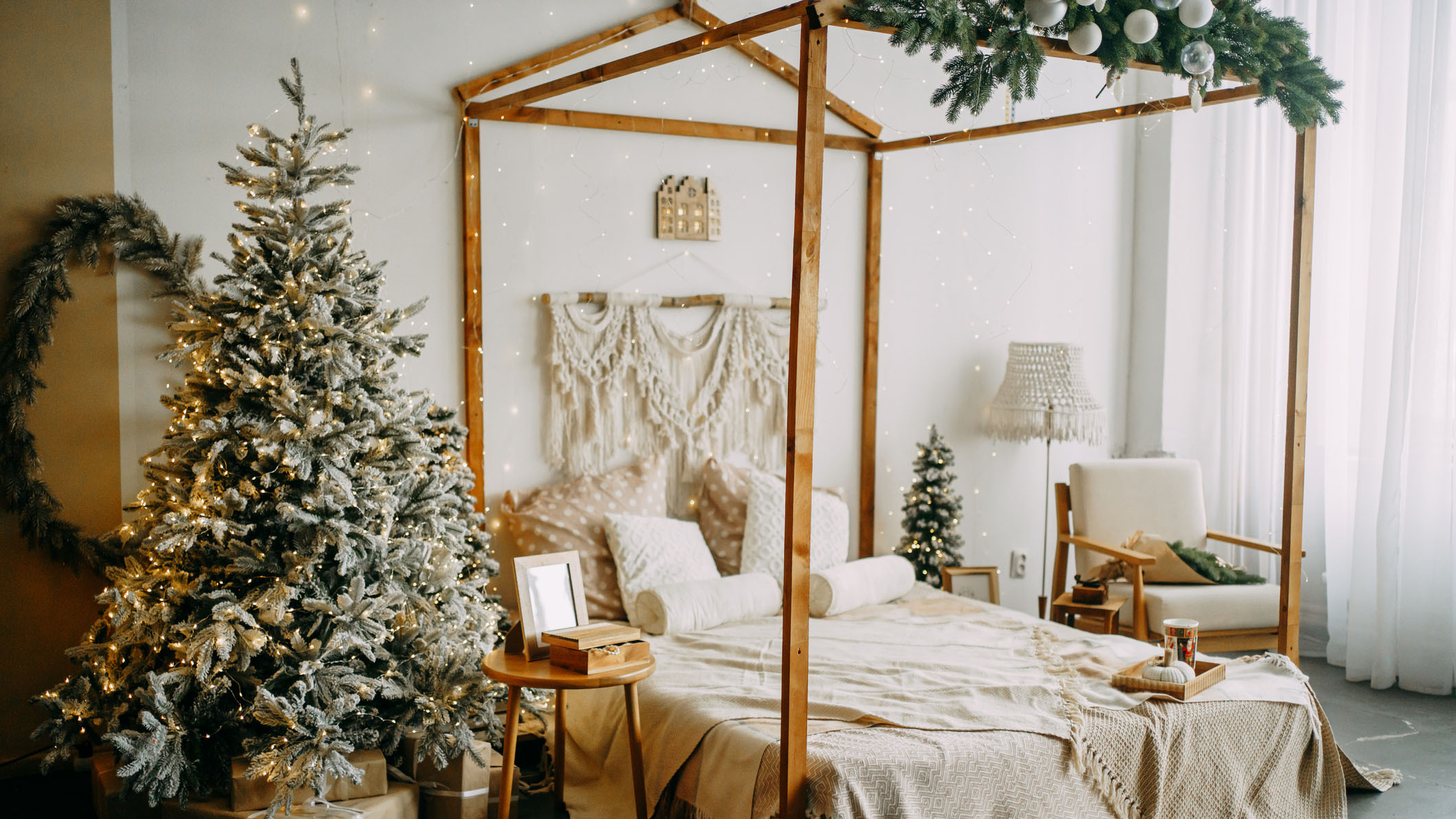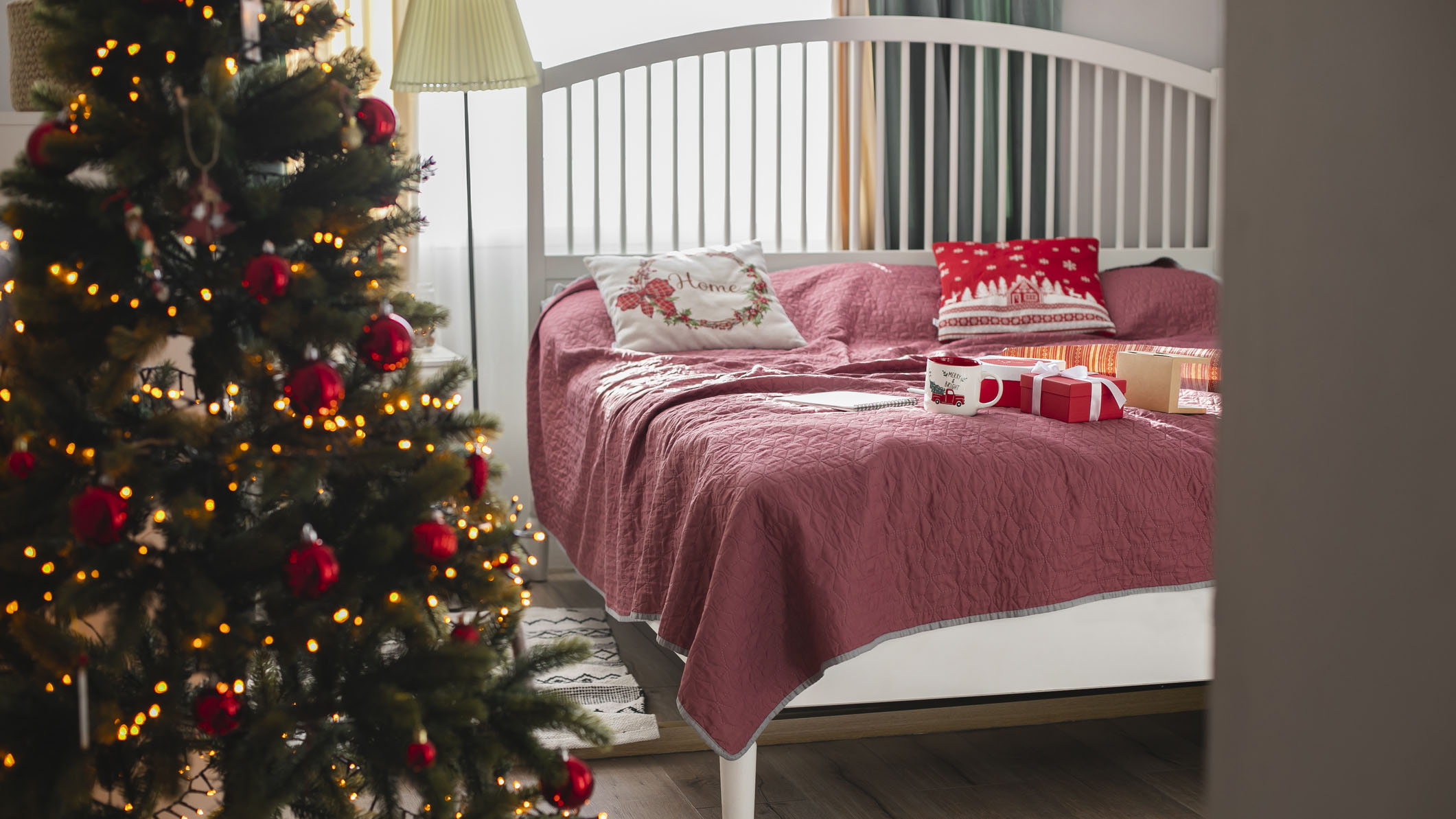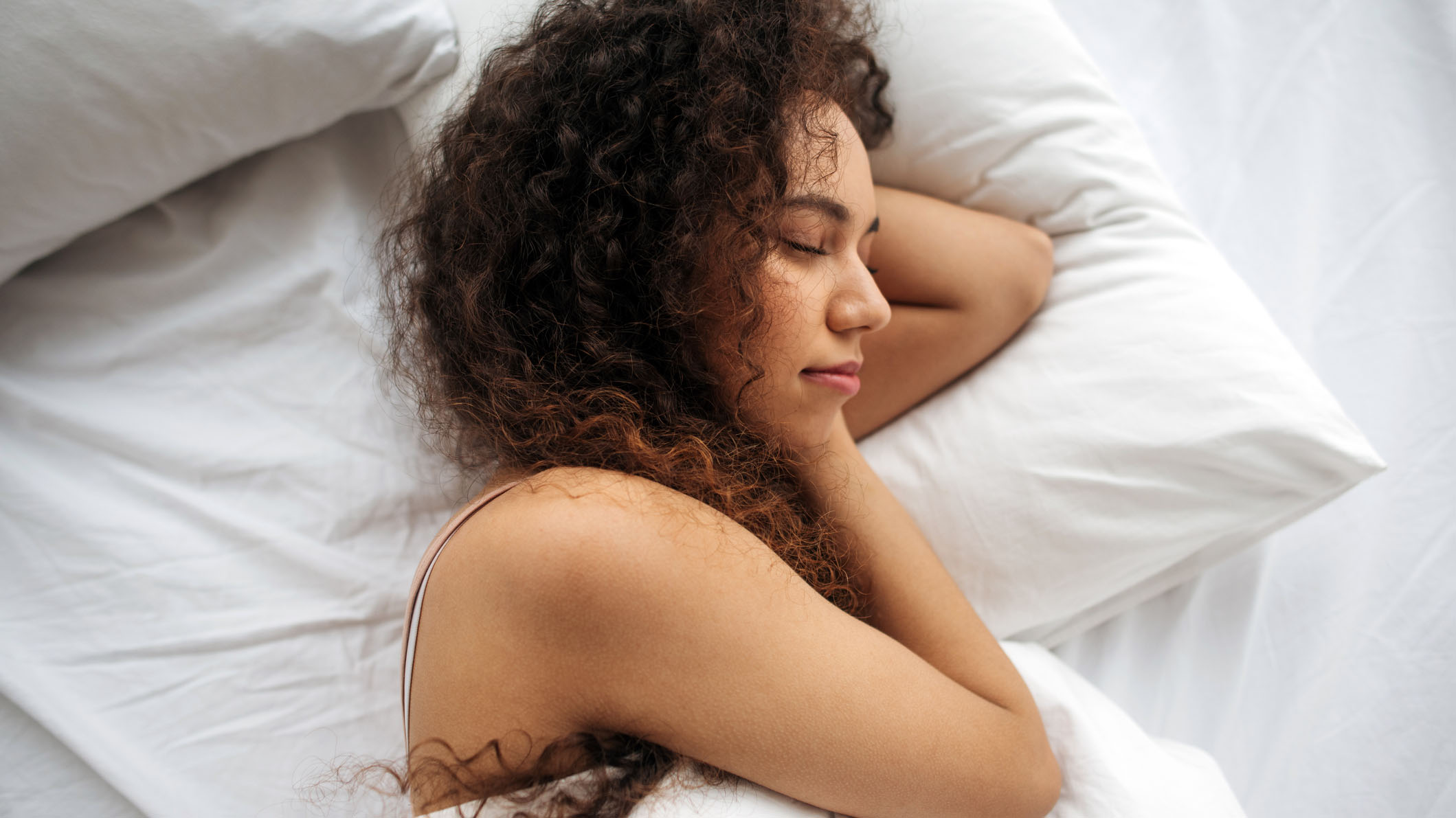
With millions of us already decorating for the festive season, Dr Sophie Bostock, aka The Sleep Scientist and a sleep expert for Bensons for Beds, has revealed that the light exposure and allergens from Christmas decorations can interfere with our ability to fall asleep and our sleep quality.
The news follows a 30% increase in Google searches for ‘can’t sleep’ last week, which Dr Bostock suggests could be attributed during this specific period of time to all those twinkling Christmas lights in your home, in addition to holiday stress.
“Light exposure in the hours before we get into bed, and during the night, can interfere with sleep quality and our ability to recover overnight,” explains Dr Bostock. “Even when we have our eyes closed, recent research has shown that ambient light in our bedrooms can keep us in a lighter stage of sleep, and disturb our metabolism the next day.”
The sleep scientist says that having Christmas lights blazing right up until you go to bed (a time when it's supposed to be dark), can trick your mind and your circadian rhythm into thinking its daytime. “Light at night disrupts our natural circadian rhythms, or body clocks, which have evolved for us to rest at night."
The link between Christmas trees and poor sleep
However, it isn't just fairy lights that disrupt our sleep quality. Dr Bostock also notes that Christmas decorations also carry allergens, which can trigger a reaction that makes sleeping difficult.
For eleven months of the year, Christmas decorations are typically stored away in lofts, garages and sheds, gathering dust. Dust mites carry allergens, which can aggravate your sinuses. If you opt for a real Christmas tree, these carry chemicals known as terpenes, which can also cause allergies.

According to Dr Bostock, allergies can affect your sleep in a number of ways: “Firstly, symptoms such as itchy eyes, a runny nose, wheezing or sneezing can actively interfere with the process of falling asleep. If you’re in pain, or getting frustrated by the discomfort, it’s naturally very difficult to relax and fall asleep.”
Allergens can ruin our sleep quality even when we’re asleep. “When we have an allergic reaction, our nasal passages become inflamed and congested. This congestion narrows the airways, which can cause wheezing and snoring," Dr Bostock continues. "Breathlessness has been linked to higher levels of arousal during sleep. In other words, you’re more likely to have broken sleep or to wake feeling fatigued.”
How to enjoy your Christmas tree and good sleep
If the idea of shunning your Christmas decorations for some shut-eye feels a bit bah-humbug to you, Dr Bostock has shared her top tips to help you enjoy your tree, all those Christmas lights and a good night's sleep...
- Keep your bedroom free from bright lights – “I’d recommend switching Christmas lights off before you go to sleep. If light comes in through the window, fit blackout blinds or wear an eye mask." If you still want to have twinkly lights in your bedroom for that all-round Christmas feel, the sleep experts suggests choosing dimmable ones.
- Try to avoid overstimulating flashing lights and decor – "Try not to go too ‘Deck The Halls’ this season and instead opt for a moderate amount of Christmas lights. Choose static lights to avoid the flashing disturbances on your eyes and instead use your lighting to create a warm ambience that will help you relax."
- Keep Christmas trees out of your bedroom – "If you’re prone to allergies, keep any real Christmas trees away from your bedroom or, if a tree is a must, go for a fake one."

Top tips for better sleep this Christmas
Christmas is a wonderful time of year but it isn't without its stresses – catering, hosting family and friends, gift shopping and more can all take its toll on your physical and mental health. In turn, that can lead to sleep issues such as having trouble falling asleep, or even waking up more in the night because there's so much ' noise' in your brain.
In order to sleep well this Christmas and beyond, try the following tips to help you survive the holiday season with your sleep intact:
- Get up at the same time every day, even on weekends.
- Create a relaxing bedtime routing and stick to it.
- Avoid alcohol and caffeine after midday as they can disrupt your sleep.
- Take a few minutes to process any stress or worries before going to bed.
- Try to avoid rich, heavy meals before bedtime as your body will be focused on digestion and not sleeping.
- Write a to-do list before going to sleep so you aren't constantly thinking about what you need to do tomorrow.







